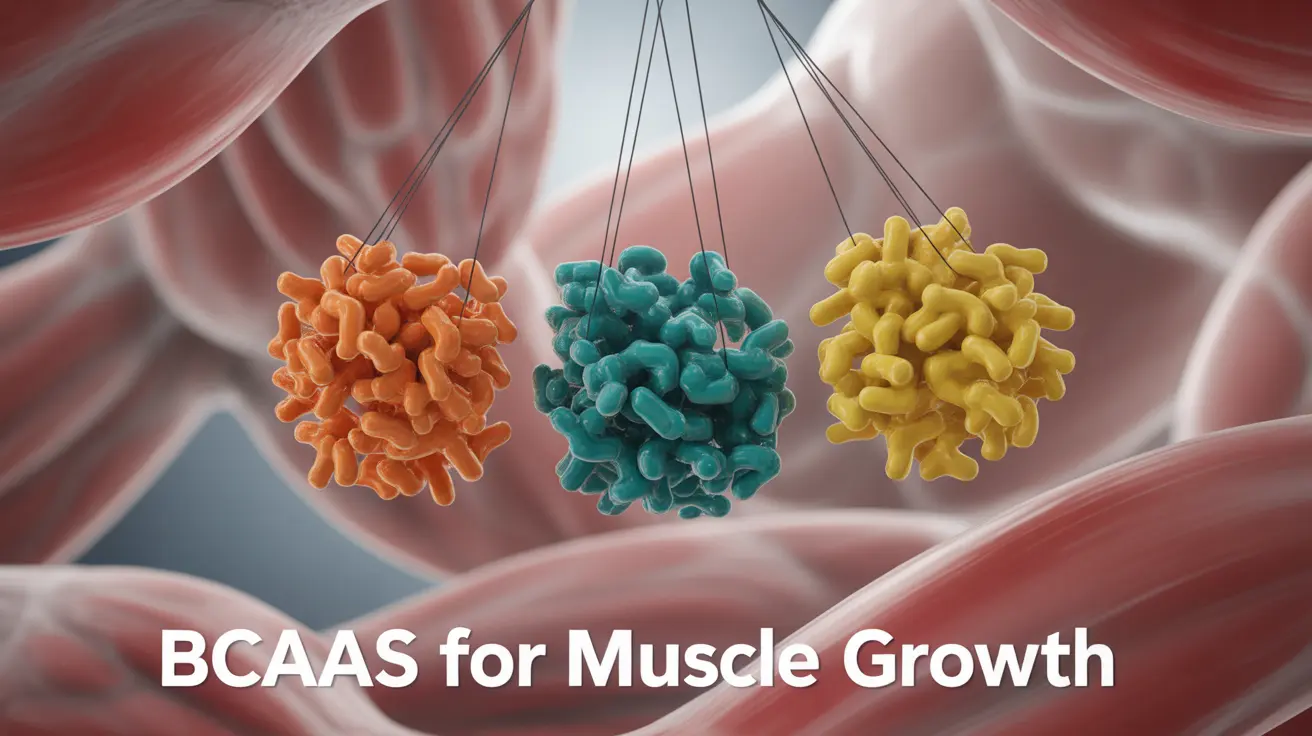Branched-chain amino acids (BCAAs) have become increasingly popular in the fitness and wellness community, particularly among athletes and bodybuilders seeking to optimize their muscle growth and recovery. These essential amino acids—leucine, isoleucine, and valine—play crucial roles in muscle protein synthesis, energy production, and overall athletic performance.
In this comprehensive guide, we'll explore the science behind BCAAs, their potential benefits, and how they might fit into your nutrition strategy. Whether you're an athlete, fitness enthusiast, or someone interested in maintaining muscle mass as you age, understanding BCAAs can help you make informed decisions about your supplementation needs.
The Science Behind BCAAs
BCAAs are three essential amino acids that share a unique branched molecular structure. Unlike other amino acids, BCAAs are primarily metabolized in muscle tissue rather than the liver, making them particularly important for muscle health and function.
These amino acids make up approximately 35% of your muscle protein and serve as both building blocks for new muscle tissue and an energy source during intense exercise. Leucine, in particular, acts as a powerful trigger for muscle protein synthesis through the mTOR pathway.
Benefits of BCAA Supplementation
Enhanced Muscle Growth and Recovery
BCAAs play a vital role in stimulating muscle protein synthesis, particularly through leucine's activation of important cellular pathways. This process is essential for building new muscle tissue and repairing exercise-induced muscle damage.
Research suggests that BCAA supplementation may be most effective when taken around workout times, helping to maximize the anabolic response to resistance training.
Reduced Exercise Fatigue
During prolonged exercise, BCAAs can help reduce central fatigue by competing with tryptophan for entry into the brain. This mechanism may help athletes maintain better performance during extended training sessions.
Prevention of Muscle Wasting
BCAAs have shown promise in preventing muscle catabolism, particularly during periods of caloric restriction or illness. This makes them valuable for both athletes in cutting phases and older adults looking to maintain muscle mass.
Optimal BCAA Usage
Timing and Dosage
Most research suggests taking 5-10 grams of BCAAs before, during, or after exercise for optimal benefits. The most common ratio in supplements is 2:1:1 (leucine:isoleucine:valine), though some products may vary.
Food Sources vs. Supplements
While BCAA supplements are popular, these amino acids are naturally found in protein-rich foods such as:
- Chicken and turkey
- Beef
- Fish
- Eggs
- Dairy products
- Legumes
Safety and Considerations
While BCAAs are generally considered safe for most people, it's important to understand potential interactions and appropriate usage. Some individuals may experience mild side effects such as fatigue or loss of coordination when taking high doses.
Frequently Asked Questions
What are branched-chain amino acids (BCAAs) and how do they benefit muscle growth?
BCAAs are essential amino acids (leucine, isoleucine, and valine) that directly stimulate muscle protein synthesis. They benefit muscle growth by providing the building blocks for new muscle tissue and activating important cellular pathways, particularly through leucine's effect on mTOR signaling.
Can BCAA supplements help reduce exercise fatigue and muscle soreness?
Yes, BCAAs can help reduce exercise fatigue by competing with tryptophan for brain entry, potentially delaying central fatigue. They may also help reduce muscle soreness by supporting muscle repair and reducing protein breakdown during exercise.
Are BCAAs effective for preventing muscle wasting in aging or illness?
Research suggests that BCAAs can help preserve muscle mass during periods of catabolism, making them potentially beneficial for elderly individuals and those with certain medical conditions. However, they should be used as part of a comprehensive nutrition and exercise strategy.
How do BCAAs compare to complete protein sources like whey for muscle recovery?
While BCAAs provide targeted amino acid support, complete protein sources like whey contain all essential amino acids and may be more effective for overall muscle recovery. BCAAs can be beneficial when used in addition to complete protein sources, particularly during fasted training or between meals.
What are the possible health risks or side effects of taking BCAA supplements?
Most people tolerate BCAA supplements well, but potential side effects may include nausea, headaches, or fatigue. High doses might affect blood sugar levels or interfere with certain medications. It's important to consult with a healthcare provider before starting supplementation, particularly if you have any underlying health conditions.




